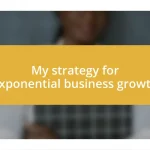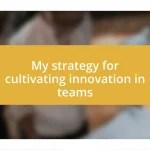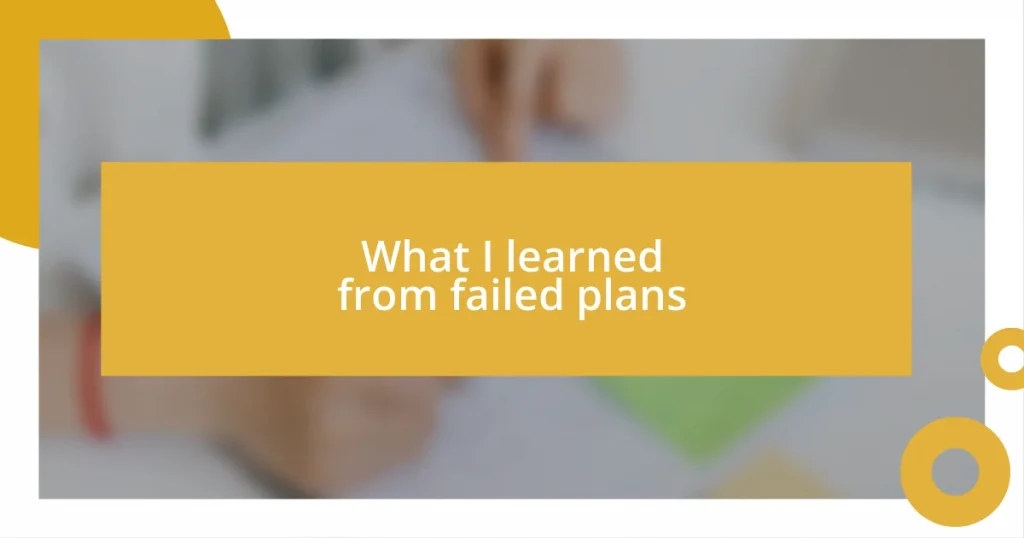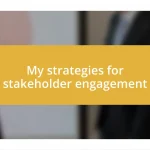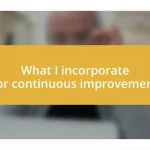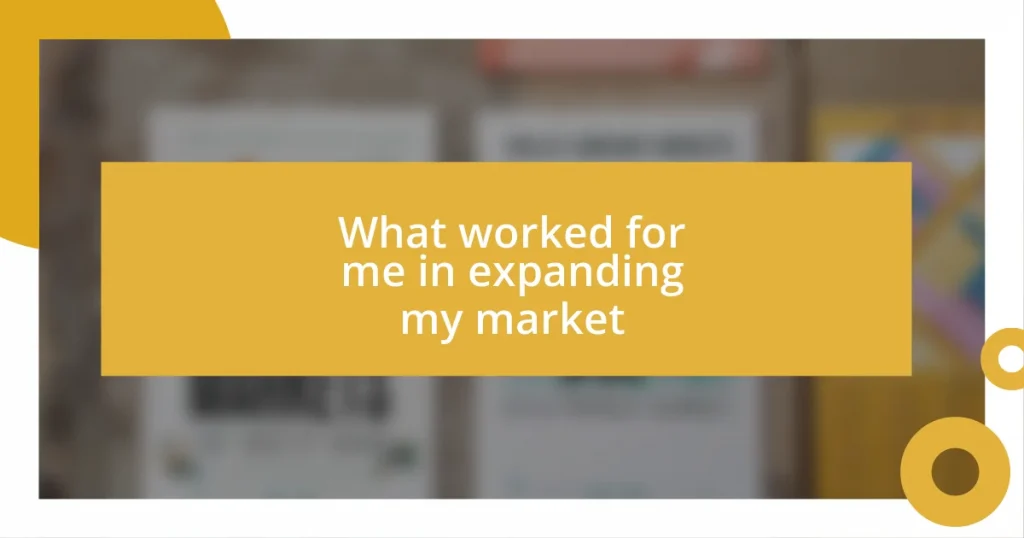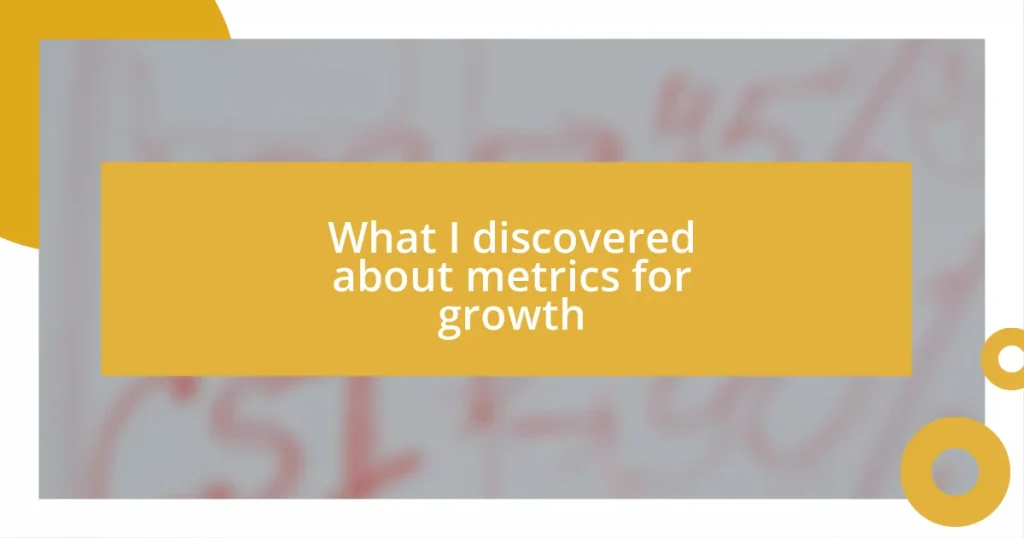Key takeaways:
- Embrace failure as a learning opportunity; reflection on setbacks can lead to personal growth and connection with others.
- Clear communication and adaptability are essential for effective planning; regularly reassess and adjust strategies based on feedback.
- Resilience and a growth mindset help transform failures into success; documenting experiences and collaborating with others can foster new insights and innovation.

Understanding the importance of failure
Failure is often viewed with disdain, yet I believe it holds incredible value. Personally, I’ve faced my share of setbacks, like that time I mismanaged a project at work. It was humbling to realize that my plans didn’t just go awry; they came crashing down, leaving me with a hefty lesson about the importance of preparation and adaptability.
Reflecting on those experiences, I can’t help but ask: what if we embraced failure instead of fearing it? Each time we stumble, we gain insights that guide future decisions. I remember vividly a moment of embarrassment after a presentation flopped. Instead of retreating, I took it as an opportunity to refine my skills. That rebuke became a stepping stone to improvement, highlighting the growth potential wrapped within every failure.
Moreover, I’ve found that sharing my failures helps to foster connection and empathy with others. When I tell friends about my challenges, their responses often reveal they, too, have faced similar hardships. This shared experience enhances our bonds and reshapes the way we view failure—not as a dead end but as a universal thread in the fabric of our journeys.

Lessons from personal experiences
One lesson I’ve learned from my own failed plans is that clarity is crucial. During a fundraising event I organized, I crafted a detailed timeline, intending everything to go off without a hitch. However, my lack of clear communication with my team led to chaos. We all had different interpretations of the plan, and things fell apart quickly. This taught me that without a unified vision and clear roles, even the best-laid plans can unravel.
Here are some key lessons I derived from that experience:
- Set clear expectations: Make sure everyone is on the same page from the start.
- Communicate consistently: Frequent check-ins can prevent misunderstandings.
- Embrace flexibility: Being open to changing plans can lead to spontaneous and valuable solutions.
- Reflect on failures: Take time to analyze what went wrong and capture those insights for the future.
Another pivotal learning moment for me was when I attempted to launch a blog. I envisioned it as a creative outlet but was quickly overwhelmed by my unrealistic deadlines and the pressure to be perfect. After months of frustration, I had to let it go. The experience taught me the importance of pacing myself and the value in prioritizing joy over expectation. Sometimes, it’s okay to slow down and enjoy the process rather than rush toward an arbitrary finish line.

Strategies to reassess your plans
Reassessing plans can feel daunting, but I’ve found it to be a necessary exercise for growth. One effective strategy is conducting a “post-mortem” analysis after a project fails. This involves gathering your team and reflecting on what worked, what didn’t, and why. I remember tackling a marketing campaign that missed its mark. After dissecting our approach, we discovered we had strayed from our target audience. This realization not only clarified our next steps but strengthened our focus moving forward.
Another tactic I’ve employed is seeking feedback from trusted colleagues or mentors. When I struggled with a pitch that flopped, I reached out for insights. Surprisingly, their fresh perspectives revealed aspects I hadn’t considered. It was a humbling experience but it reinforced the importance of collaboration. Engaging others in your reassessment provides an invaluable opportunity to harness different viewpoints, enhancing your planning process.
Lastly, integrating a flexible mindset has been transformative for my planning approach. I used to stick rigidly to my original plans, but I’ve learned that adaptability is key. Recently, while managing a community event, unexpected weather forced us to rethink our setup. Instead of panicking, we adjusted our venue and created a cozy indoor atmosphere, which turned out to be a hit. Embracing flexibility allows for creativity and opens doors to unexpected solutions—even when things go awry.
| Strategy | Description |
|---|---|
| Post-Mortem Analysis | Reflect on what went right and wrong with your team. |
| Seek Feedback | Engage with colleagues for diverse perspectives on your plans. |
| Embrace Flexibility | Be open to adapting plans based on unexpected circumstances. |

Embracing a growth mindset
Embracing a growth mindset has been transformative in my journey. I remember a time when I attempted to launch a new product. I was adamant about it being perfect before release, but that led to endless revisions and ultimately, a delay that cost us momentum. I learned that it was far better to embrace imperfection, launch early, and gather real feedback rather than letting fear of failure hold me back. Have you ever felt paralyzed by the need to be perfect? It’s a common struggle, but I found that being open to learning from those experiences is what truly fuels growth.
Another experience stands out to me: I once took part in a group art project that didn’t turn out as I had envisioned. Initially, I felt let down, frustrated by the disconnect in creative visions. But instead of clinging to that disappointment, I decided to explore what went wrong. This shift in perspective allowed me to appreciate the diversity of ideas and ultimately create a piece that resonated more with everyone involved. Can you recall a time when embracing different opinions led to a more enriching outcome? Finding value in collaboration can really reshape how we approach our goals.
I’ve also found that self-reflection plays a crucial role in cultivating a growth mindset. After a particularly challenging year, I spent time journaling about my experiences and what I had learned—both from my failures and successes. Looking back, I discovered patterns in my decision-making that I hadn’t noticed before. This practice not only helped clarify my vision for the future but also instilled a sense of resilience. Have you ever taken the time to reflect on your experiences? I genuinely believe that these moments of introspection can illuminate pathways to growth and open doors to new opportunities.

Techniques for better planning
One technique that consistently enhances my planning is breaking larger goals into smaller, manageable tasks. I recall a time when I tackled organizing a large conference. At first, the enormity of the project overwhelmed me. However, by dissecting the event into actionable steps—like venue selection, speaker outreach, and marketing—it felt less intimidating. Have you tried dividing your goals? It can be a game-changer, helping to maintain focus and celebrate small victories along the way.
In my experience, utilizing a visual planning tool has significantly improved my organization. When I started mapping out my tasks on a digital platform, something clicked. I could see deadlines, dependencies, and progress in one view, which helped me stay on track. Have you ever experienced that “aha!” moment when everything just comes together visually? This clarity not only reduces stress but also allows for better prioritization of tasks, ultimately leading to more effective outcomes.
Lastly, I’ve found that setting regular check-ins with myself or my team is incredibly beneficial. I used to avoid these meetings out of fear of discouragement, but they have become a crucial part of my planning process. During one project, these check-ins revealed early signs of potential misunderstandings. Addressing them quickly saved us from major setbacks down the line. How often do you pause to really evaluate where you or your team stand? I believe these moments of introspection can keep you aligned with your goals and ensure you’re on the right path.

Moving forward after setbacks
One of the biggest lessons I’ve learned about moving forward after setbacks is the importance of reframing the narrative. I recall facing a major project that completely derailed due to unforeseen circumstances. Instead of wallowing in disappointment, I chose to view it as an opportunity to discover my resilience. How often do we let setbacks define our journey? When I shifted my perspective, I was able to uncover valuable insights that not only helped me adjust my plans but also made me more adaptable for future challenges.
Building a support system has been a game changer during times of struggle. I remember reaching out to a mentor after a failed business initiative. Sharing my thoughts and feelings allowed me to process the experience without judgment. It’s incredible how someone else’s perspective can illuminate paths that you didn’t see before. Have you ever leaned on someone during tough times? I found that these conversations not only offered comfort but also inspired new strategies that propelled me forward.
Finally, I’ve realized that taking small, intentional steps can lead me out of the dark after setbacks. I once found myself in a creative rut after an art exhibition didn’t resonate as I had hoped. Instead of attempting another grand project right away, I began crafting smaller pieces that reignited my passion. These little wins reignited my excitement and reminded me why I started in the first place. How do you re-engage with your passions after a setback? Embracing incremental progress can be an incredibly empowering way to move forward.

Turning failure into success
Reflecting on my own experiences, I’ve found that embracing failure often leads to unexpected avenues for success. For instance, there was a time when I launched a side project that flopped spectacularly. Initially, I was crushed, but as I sifted through the aftermath, I unearthed skills I’d developed—like marketing and audience engagement—that I hadn’t previously recognized. Could it be that our missteps hold the keys to our future growth? I believe that recognizing and harnessing these hidden abilities is a critical step in transforming failure into a launchpad for future successes.
Another powerful lesson I’ve derived from failed plans is the importance of adaptability. I recall a project that pivoted dramatically after its initial execution. Rather than clinging to the original vision, I gathered my team and encouraged a brainstorming session to explore new directions. Witnessing everyone’s ideas flow in real-time was electrifying! Have you ever felt that creative energy when embracing change? In that moment, it became clear that our willingness to innovate beyond setbacks often results in richer, more fulfilling outcomes.
Moreover, I can’t emphasize enough the role of resilience in this process. After a significant goal went sideways, I chose to document my feelings in a journal. Writing down my thoughts not only provided a sense of catharsis but also highlighted patterns in my decision-making that needed addressing. There were days when it felt heavy to reflect, but did I ever find clarity in those pages! I wonder, how often do we give ourselves the space to really process our experiences? For me, those moments of reflection became instrumental in developing a more robust plan to tackle future endeavors with renewed vigor and insight.





